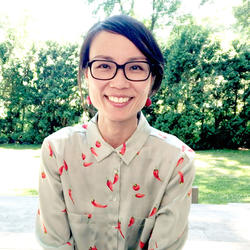Junko Yamamoto
Junko Yamamoto, a founding principal of iVY based in Pawtucket, RI, is a licensed architect in Japan and the US. She holds an architecture diploma with honorary standing from Kyoto Architectural College, a BArch degree with distinction from the Boston Architectural College and an MArch II degree from Harvard Graduate School of Design.
She has been practicing since 2005, playing a key role in the design and construction of numerous projects, including those for MIT and Harvard University campuses and commercial buildings in New England, while undertaking independent commissions from custom furniture and exhibition design to residential projects in the US and Japan. Her architecture firm, iVY, was invited to the European Cultural Center Venice Architecture Biennale in 2020.
In parallel with her professional design practice, Yamamoto works as an artist. Her artwork has been exhibited internationally in various juried exhibitions, including the recent Nakanojo Biennale International Contemporary Art Exhibition Japan, and featured in publications, including ArchDaily, CICA Museum Yellow Book, architecturephoto.net, BAC Journal and BAC Practice Magazine. Expanding her practice in art and architecture, she served as a chair of the Global Practice Network at the Boston Society for Architecture and also teaches at Harvard Graduate School of Design, Roger Williams University and Boston Architectural College.
